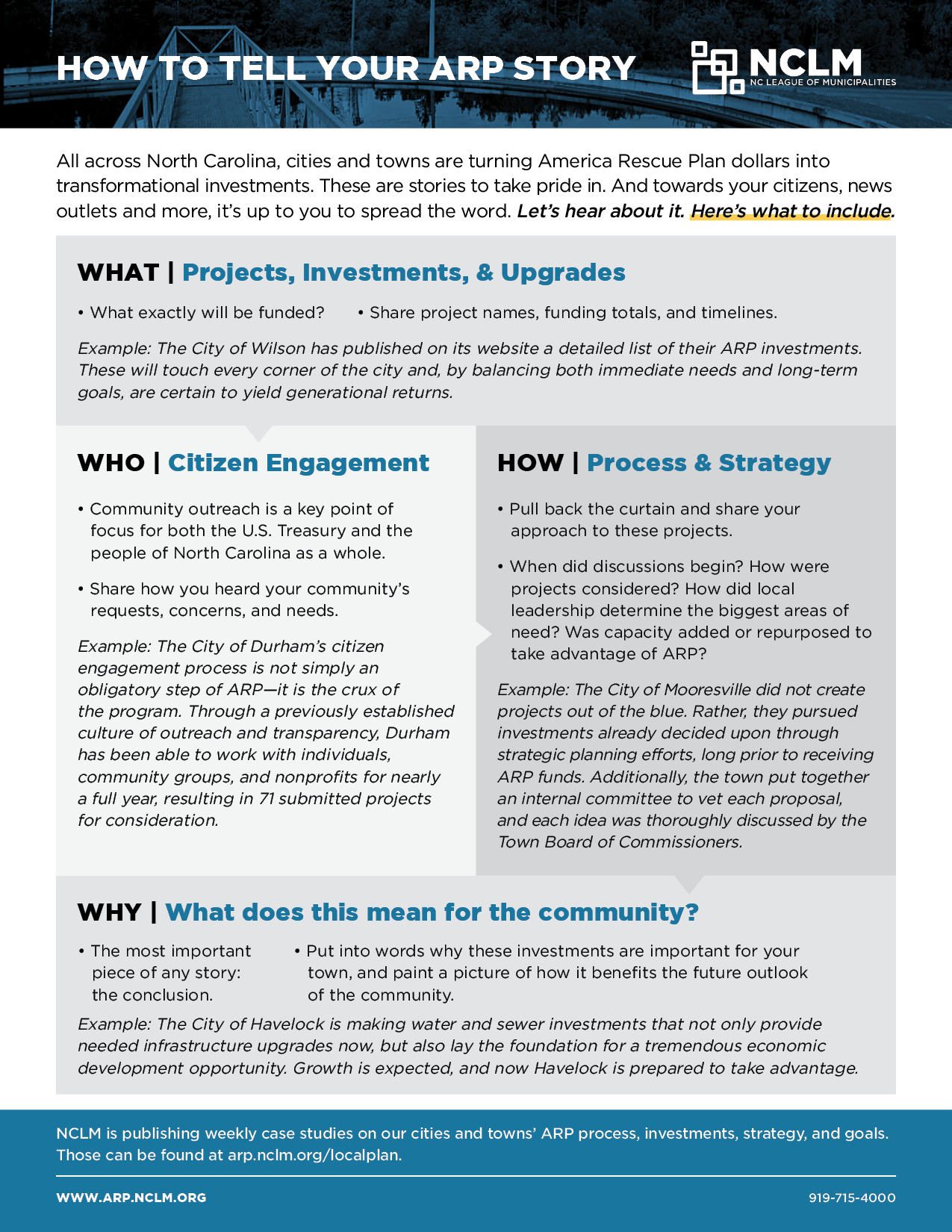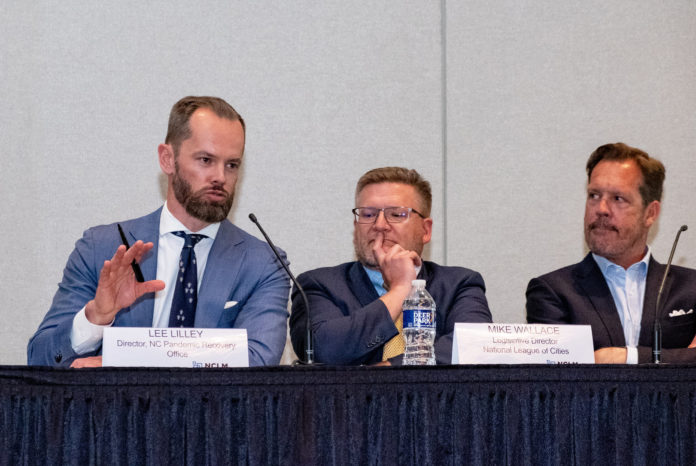You’re making transformational investments in your hometown. Let’s hear about it.
Over the past several months, many state and local leaders have pointed out how funding from the American Rescue Plan Act has
created a once-in-a-generation opportunity to make transformational investments for communities across the state.
At CityVision 2022, another set of voices discussed something nearly as important: Why publicly conveying individual success stories about the effects of those investments is crucial for cities and towns.
A panel made up of Albert Eckel, co-founder of public relations firm Eckel and Vaughan; Mike Wallace, Legislative Director for Community and Economic Development at the National League of Cities; and Lee Lilley, Gov Roy Cooper’s Director of North Carolina Pandemic Recovery, each provided advice on both the need to promote ARPA success stories and how to go about doing so. The discussion took place as part of one of the concurrent issues sessions designed to inform conference participants during CityVision 2022.
Wallace, who was a part of the NLC team that worked on securing direct appropriations for cities and towns in the ARPA, pointed out how that direct funding represented a landmark achievement.
“It is really a resounding vote of confidence in you, as local leaders,” Wallace said.
But he also noted how members of Congress, and the public at large, would be watching how those dollars are spent.
“It’s more important to spend those funds right than to spend them out fast,” he said, even while acknowledging that some media outlets and state leaders have questioned why ARPA dollars have not been allocated.
While North Carolina cities and towns are set to receive $1.3 billion in direct ARPA funds, many municipalities are only receiving their second tranche of funds now. Meanwhile, the congressionally-
mandated deadline for the obligation of funds does not fall until December 31, 2024, while funds do not have to be spent until December 31, 2026.
Eckel encouraged local officials to spend time with their local media to “make them a part of the process.” While a number of cities and towns across North Carolina have engaged the public, business owners and nonprofit leaders as a part of the ARPA decision-making process, pulling the media into those sessions to demonstrate community involvement can help early and then later as the funding is spent, he and the other speakers noted.
Eckel presented a video created at the behest of the City of Wilmington and the N.C. Metropolitan Mayors Association, with the help of his firm, which showcased ARPA projects in the CityVision 2022 host city and highlighted community involvement. It utilized the voices of community, business, and non-profit leaders, rather than just those of local elected officials and city staff.
While that type of video may not be appropriate or feasible for every city and town, other formats—from handouts to social media posts to direct outreach to local media—may be, Eckel said.
Lilley pointed out that even as the ARPA legislation became somewhat partisan in Washington, the projects that cities embark with the funding does not need to be seen that way.
He and the other panelists encouraged local leaders to invite members of Congress back to the community at appropriate times to promote the value of the projects, as well as express appreciation.
Taking these steps is all part of the story-telling process.
“If we are not telling our story, someone is going to be telling it for us … and we might not like they way that they tell it,” Lilley said.
The comment echoed those by the panel moderator, NCLM Board of Directors member and Morrisville Council Member Satish Garimella.
“There are some who would like to see us fail, who do not believe that we will spend these dollars wisely. And that is why it is important to highlight our successes,” he said. “By highlighting those successes today, we ensure that we remain in the good graces of state and federal policymakers tomorrow. And we ensure that we emphasize this American Rescue Plan as the partnership that it is—at the federal, state, and municipal level—to improve the lives of our citizens.”
NCLM continues to remain committed to highlighting those success stories as well, in weekly features in the Legislative Bulletin, as well as in the pages of this magazine and in other formats. Do not hesitate to contact us if you would like to promote an ARPA investment in your city or town.















